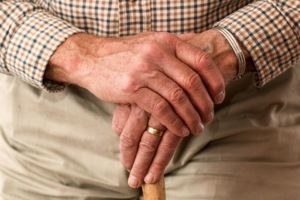News
Elderly singles vanishing from Copenhagen
This article is more than 9 years old.
Number has almost halved since 1986

A more uncommon sight in Copenhagen (photo: Pixabay)
Despite more and more people living alone in Denmark, the number of single elderly people over the age of 70 living in the municipalities of Copenhagen and Frederiksberg has almost halved from 56,000 to 31,000 over the past 30 years.
Traditionally, old people have tended to return to the city to see out their final days in a flat, once the upkeep of their family home became too burdensome. But better health and high property prices in the capital has seen more remain, according to Jan Nordmann, the head of communications for real estate company EDC.
“The generation that moved to single-family detached homes 50 years ago have simply stayed there,” he said.
“As we’ve become older, we’ve also remained healthy longer and have better resources to live in and upkeep our house and garden. And housing prices have increased relatively more than in the suburbs, and many feel that switching their house in the suburbs for an apartment in the city centre would be a poor trade.”
READ MORE: More single parents in Denmark than ever before
1.18 million nationwide
Copenhagen has also prioritised families with children for many years –something that perhaps has also pushed out more elderly.
“We can see that the elderly have gone from making up more than one fifth of the population in Copenhagen in 1986 to being less than one tenth today,” said Nordmann.
In total, some 1.18 million Danes live alone (or with children only), and over the past 30 years, there has been a 78 percent increase in single men and a 44 percent increase in single women.










































